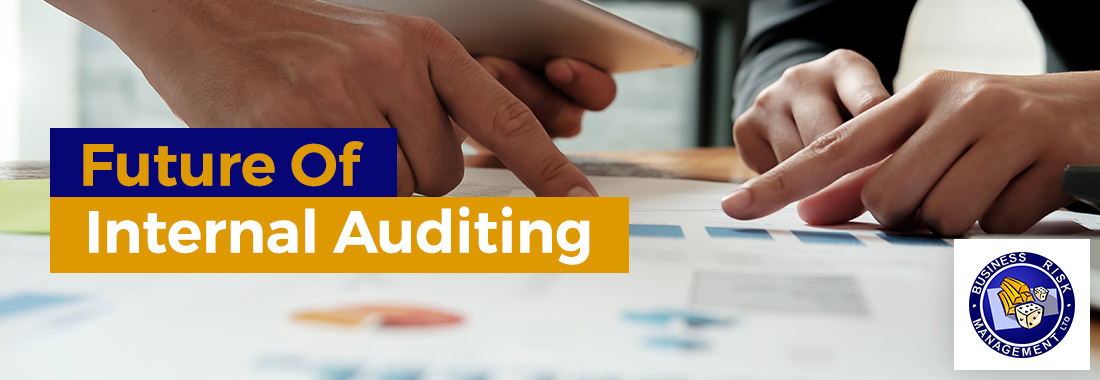The Future of Internal Audit

Benefits of attending
Why you should attend
- The Internal audit function is increasingly regarded as a business partner, a catalyst for change and a Governance advisor.
- You therefore need your internal audit function to become a trusted advisor and internal consultant.
- The course represents a superb opportunity to develop new approaches to the difficult challenges facing modern audit functions
- The workshop also provides the platform to focus the key role of IA to this fast changing world
Course Details
Course Level
- This is an intermediate level course and delegates should ideally have 2 years’ audit experience
- Delegates should have a good educational standard and/or a professional qualification
- No advance preparation is required
- Delivery method – On-line-live (with exercises and case studies to provide practical application of the tools and techniques)
After completing this course you will be able to
- Deal with the ever changing audit challenges
- Demonstrate measurable value to the business
- Understand and implement the latest IIA guidance
- Apply updated audit analytics techniques
- Appreciate the additional skills required by the modern auditor
- Develop an audit approach to help the organisation better deal with the new world order
CPE credits
Participants will earn 12 CPE credits in the Auditing field of study
Modules
Day 1: Participants will earn 12 CPE credits in the Auditing field of study
The need for Internal Audit the a strategic advisor
- New IIA Code of Conduct
- Helping the Board tprotect the assets, reputation and sustainability of the organisation.
- Internal audit should have the right tattend and observe all or part of executive committee meetings
- The primary reporting line for the chief internal auditor should be tthe chair of the Audit Committee.
- New IIA Audit Executive guidance
- New IIA paper on models of effective IA will be shared
- Key messages from the IIA Body of Knowledge survey
- Deciding the strategic direction for your function
- Pulse of the profession survey results
- IIA becoming more effective guidance will be shared
- ECIIA research paper – making the most of the IA function
- Ensuring effective communication lines between the CAE and the board
- Gaining assurance regarding the quality of the function’s work.
- Overseeing the relationship between the IA function and the organisation’s centralised risk monitoring function.
- Exercise 1 – The new challenges facing IA
The latest developments in IA
- New guidance and its implications
- Aligning strategic audit plans with significant business risks
- Dealing with unacceptable risk – escalation with senior management
- Gathering information from multiple engagements
- Direct relationships with the Board (not only the Audit Committee)
- Assessing IT Governance
- The role in fraud risk management
- Evaluating ethics programmes
- Imperatives for change – IIA standards
- An effectiveness of IA checklist will be shared
- Making the most of IA – new IIA paper
- Exercise 2 – Dealing with the new requirements
Internal Audit recruitment challenges
- The recruitment dilemma – what if you cannot get the talent you need
- Determining a strategy for building the team
- Sources of talent – growing your own or recruiting from outside?
- New guidance on getting external expertise
- Should you try trecruit personnel with previous IA experience?Which is more important – knowledge of your sector or IA knowledge?
- Use of coaching
- Performance management – what are the most effective measures?
- What skills should you be looking for
- Checklist of issues tassess in a potential auditor
- New guidance on managing dispersed teams will be provided
- Succession planning
- Exercise 3 –Developing the audit team
The evolving audit skill set
- Why auditors need leadership skills
- The need for the ability tinfluence experts
- The IIA competency framework
- Diplomacy
- Open-mindedness
- Persuasiveness
- Negotiation ability
- Self-motivation and self confidence
- Decision making ability
- Flexibility and ability tco-operate
- Effective Time management
- Flexibility and ability tco-operate
- Self- control
- Practicality
- Results focus
- Investigative skills
- Building trust
- New IIA paper on influencing skills will be shared
- Exercise 4 – Updating the IA skill set tmeet the new challenges
Implementing audit analytics
- The use of analytical tools
- The process of data mining
- Applications of CAAT’s
- Fuzzy matching
- Data Validation
- Trend and pattern analysis
- Neural networks
- Benford’s Law and it’s importance in analytics
- Auditing big data
- Implications of IIA GTAG – understanding and auditing big data
- The use of Internal and external databases
- How tput the techniques intuse in your organisation.
- Practical uses of data analytics and the results achievable
- Exercise 5 – Use of data analytics
Continuous auditing
- The IIA Global Technology Audit Guide (GTAG)
- The practicalities of continuous auditing
- Paper – fantasy or reality
- Continuous assurance – new guidance
- Continuous auditing and continuous monitoring
- The use of CAAT’s for continuous auditing
- Continuous risk assessment techniques
- Examples of continuous auditing
- A paper on continuous audit using ACL will be shared
- New GTAG on audit sampling
- Exercise 6 –Opportunities for continuous auditing
Day 1: Adding measurable value to the business
The need to measure IA success (KPI’s)
- The requirement for IA to add measurable value
- The need for SMART KPI’s
- The KPI categories
- Audit Coverage
- Overall plan
- Audit Universe
- Key risks
- Major systems
- Geographical of functional
- Efficiency
- Timeliness
- Implementation of actions agreed
- Achievement of the 3 E’s
- Staff utilisation
- Benefits
- Monetary savings
- Over-managed risks reduced
- Unnecessary controls removed
- Ideas shared
- Extent of reliance external audit can take
- Customer service
- Audit customer feedback
- Board and Audit Committee feedback
- Number of requests
- Exercise 7–Determining effective KPI’s
Opportunity Auditing
- Why risk can be an opportunity in disguise (e.g. Failure to innovate)
- Why specifically targeting significant areas of business opportunities can deliver major measurable benefits
- Many business opportunities are overlooked by the business because management are too busy
- With budgets under even greater scrutiny, demonstrating value for money is more important than ever
- The need for an opportunity register
Opportunity audit topics
- Travel management
- Mobile communications
- Insurance
- Consultancy
- Energy management
- Budgeting
- Meetings management
- Decision making
- Exercise 8–Selecting opportunity audit topics
How to identify over-managed risks and unnecessary controls
- These are likely to be the risks in the green zone of the risk matrix
- Why unnecessary controls are often not removed
- Why Internal Audit does not focus on this aspect
- When did you last suggest reducing controls?
- Challenge ‘we have always done it this way’
- Do we have to do it?
- What are the benefits / penalties associated?
- Can you reduce effort in some areas to give time and resource for the priorities?
- Case study
- Exercise 9–How to identify over-managed activities
The need to enhance the consultancy role
- The IIA standards
- Why consultancy should be encouraged
- The difference in approach
- How to document these assignments
- Reporting consultancy assignments
- Audit by workshop
- Facilitation –do’s and don’ts
- Exercise 10 – How to convince management that consultancy is the direction for Internal Audit
Extending the audit coverage
- Auditing the least covered business aspects
- Social Media
- The web site
- Strategic planning
- Product/ service development
- Changes in Government policy
- Economic changes impacting the business
- Customer relationship management
- Sustainability
- Extreme events
- The regulatory environment
- Business Innovation
- Corporate communication
- Demographic changes and business impact
- Exercise 11 – Delegates will select 2 topics and determine the audit approach
About Phil Griffiths
Phil Griffiths, FCA

Phil Griffiths is founder and Managing Director of Business Risk Management Ltd.
A Chartered Accountant, he has over 30 years experience in risk management, Corporate Governance, internal audit and fraud prevention as practitioner, professional adviser, facilitator and trainer.
His areas of specialism are:
- Assisting Senior Management to identify, manage and then exploit the risks within their business via facilitated business risk management programmes
- Helping Internal Audit functions to implement world class standards.
- Developing fraud prevention, detection and investigation programmes
- Training both private and public sector organisations in all the above disciplines.
He has extensive experience of the European, Asian, Middle Eastern, and African markets having trained professionals from over 1000 organisations in these regions during the past 15 years
He has extensive experience of managing and auditing major International projects. He has also direct experience of negotiating major contracts (including the largest mobile telecommunications contract in the world at the time)
Phil has developed strategic alliances with professional bodies and world renowned training companies, to deliver training and consultancy services across Europe, Asia, the Middle East and Africa.
He has developed over 300 training courses on all aspects of internal audit, risk management and fraud and delivered them across the globe.
He has led risk management programmes for more than 120 private and public sector clients tailored specifically to include facilitated workshops, development of risk strategies and assistance with implementation
He is an accomplished author. His book ‘Risk Based Auditing’ is an international best seller and his new book ‘Enterprise Risk Management – the key to business success’ is receiving much acclaim
Phil has published research into many aspects of internal audit and risk management best practice, including “Strategic Risk management” “The Need to Co-ordinate Assurance Providers” and “The Expectations of Chief Executives towards Internal Audit and its future”
He is recognised as an accomplished and charismatic facilitator, trainer and lecturer and is in continual demand to speak at the most prestigious events on risk management, internal audit and fraud.
Schedule Overview
Course Fee and Timings
- First delegate: USD 1300 (GBP 1000)
- Second delegate: 15% discount
- Third delegate and over: 25% discount
Fee includes comprehensive course materials. The course will consist of three 1.5 hour sessions each day.

